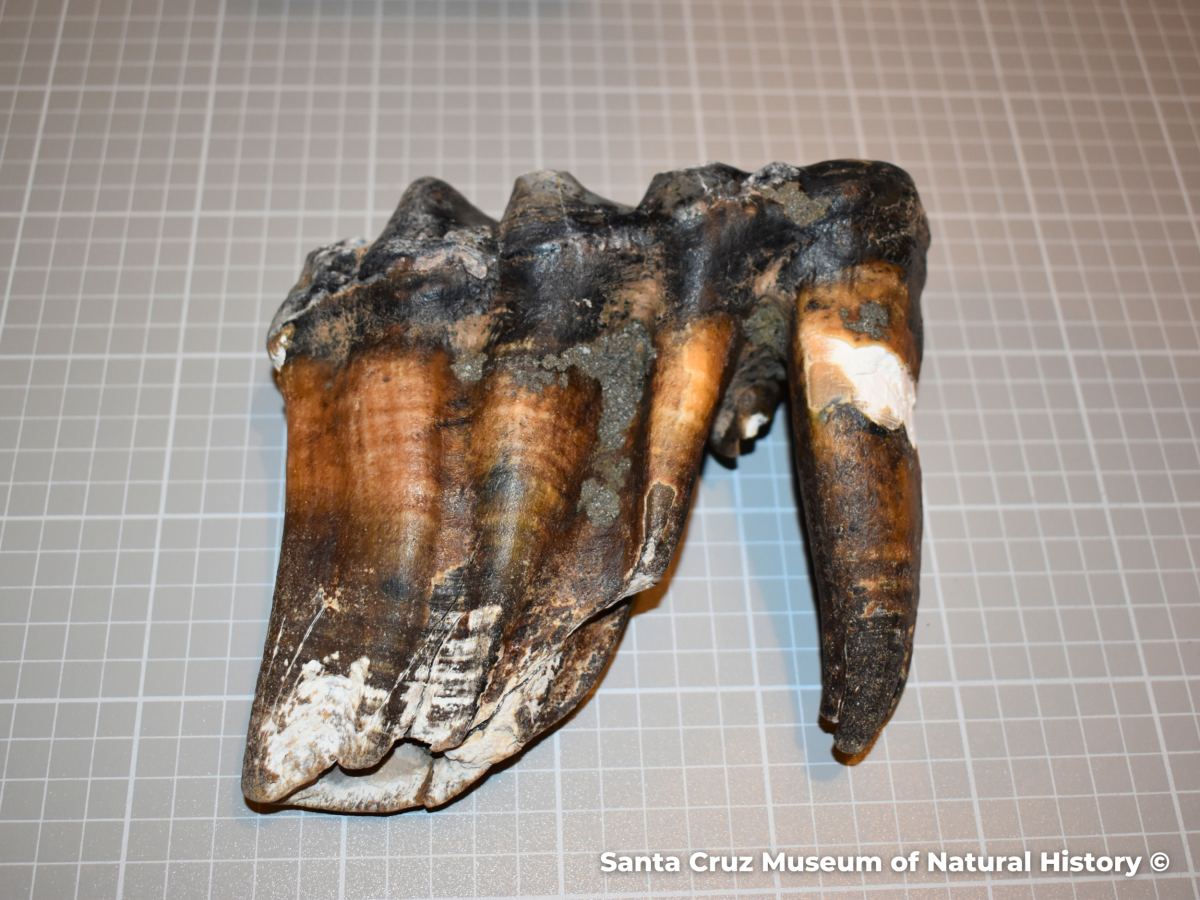A woman has found a foot-long tooth on a California beach where she was taking a stroll on Memorial Day weekend.
Jennifer Schuh had been walking near Aptos Creek on Rio Del Mar State Beach, Monterey Bay when she made the strange find, The Associated Press reported.
"I was on one side of the creek and this lady was talking to me on the other side and she said what's that at your feet," Schuh told AP. "It looked kind of weird, like burnt almost."
The foot-long tooth is thought to belong to a mastodon—a mammoth-like creature that went extinct 10,000 to 11,000 years ago.
Schuh did not know what she was seeing as first, and she posted a photograph to Facebook asking for answers. But then the tooth had disappeared, perhaps washed away.

Wayne Thompson, paleontology collections adviser at the Santa Cruz Museum of Natural History then joined the conversation.
"This is a molar tooth of the Pacific Mastodon Mammut pacificus, and an extremely important find. Give me a call when you get a chance," Thompson wrote on the social media post, according to the museum's press release.
However, the tooth was still nowhere to be found. The public was urged to look for the tooth around the beach.
"We are currently [in search of] anyone who might have recovered this tooth off the beach at the mouth of Aptos Creek at Rio del Mar or may know of its whereabouts after its discovery high on the beach in the dry sand yesterday afternoon," wrote Thompson. "We believe there is a chance that it is still there, but for all we know someone may have recovered it."
Finally a local man, Jim Smith, found the tooth again on May 30 and called the museum.
"I was so excited to get that call," Liz Broughton, visitor experience manager at the museum, said in the press release. "Jim told us that he had stumbled upon it during one of his regular jogs along the beach, but wasn't sure of what he had found until he saw a picture of the tooth on the news. He was so excited to hear it was a mastodon tooth and was eager to share it with the Museum."
A mastodon is a proboscidean—an ancestor of the modern-day elephant. Although they were similar to mammoths, they were shorter and stockier.
They lived across North and Central America from the late Miocene period, which ended about 5.3 million years ago, all the way up to their extinction.
The museum is set to display the tooth to the public in the fall.
Fossils like this help paleontologists learn more about the extinct species.
"We are thrilled about this exciting discovery and the implications it holds for our understanding of ancient life in our region," executive director at the museum Felicia B. Van Stolk said in a statement. "We are grateful that our community has rallied behind the search for the tooth so that we may help protect and share this significant specimen with the public."
Newsweek has contacted Jennifer Schuh via Facebook and the Santa Cruz Museum of Natural History.
Do you have a tip on a science story that Newsweek should be covering? Do you have a question about mastodons? Let us know via science@newsweek.com.
Uncommon Knowledge
Newsweek is committed to challenging conventional wisdom and finding connections in the search for common ground.
Newsweek is committed to challenging conventional wisdom and finding connections in the search for common ground.
About the writer
Robyn White is a Newsweek Nature Reporter based in London, UK. Her focus is reporting on wildlife, science and the ... Read more
To read how Newsweek uses AI as a newsroom tool, Click here.








